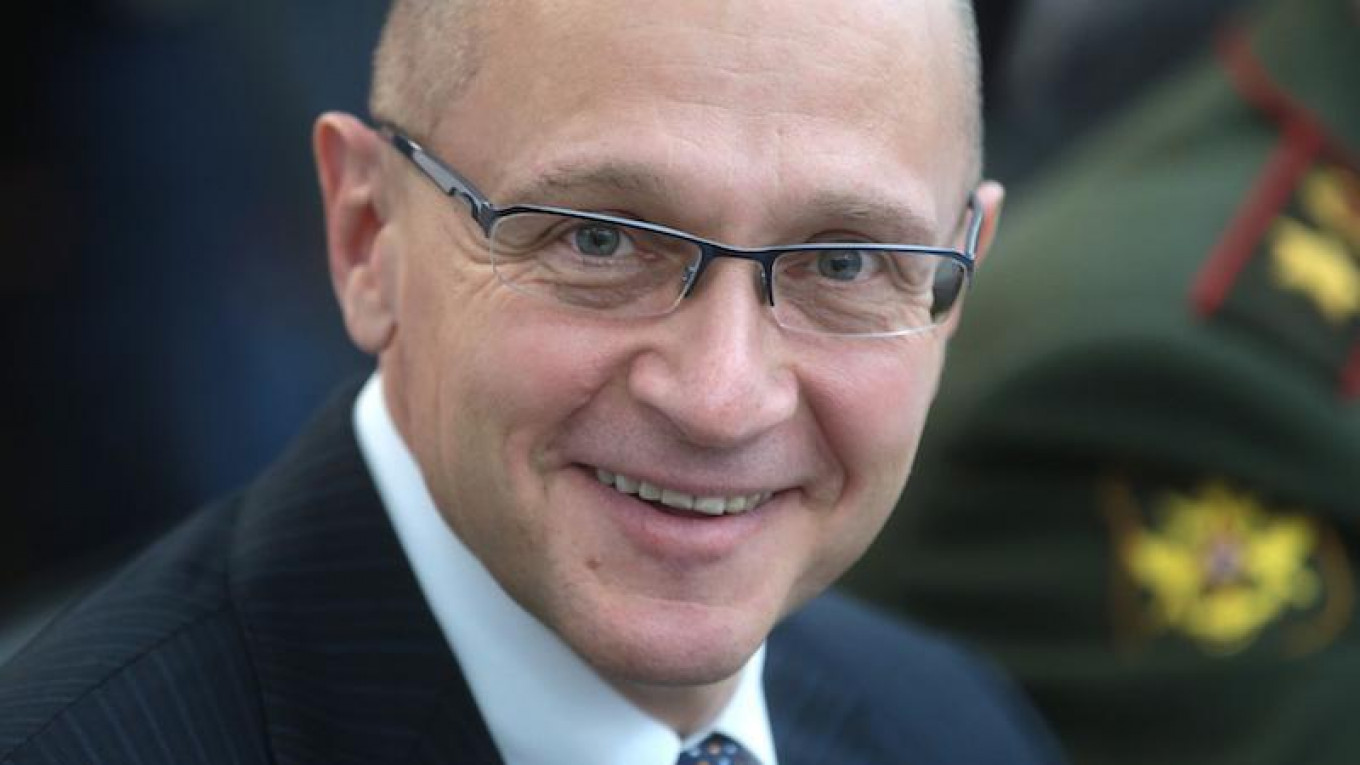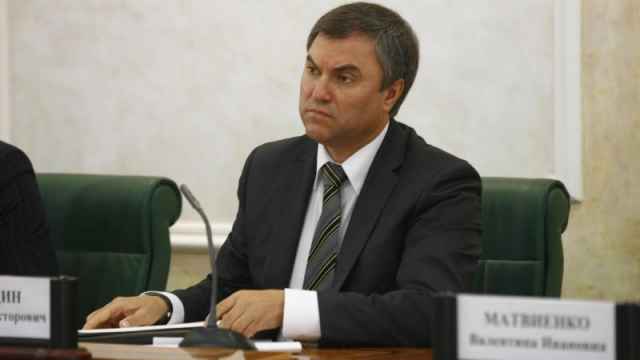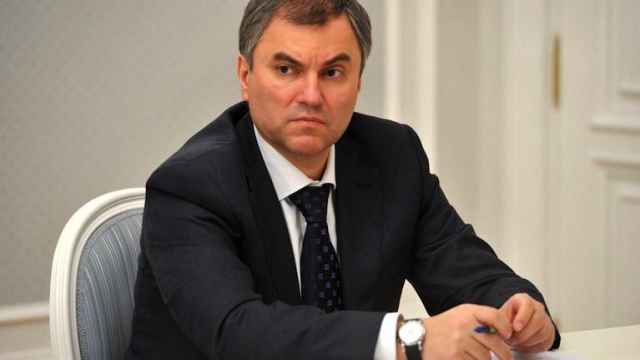Boris Yeltsin reportedly first spotted Sergei Kiriyenko, then a young businessman from Nizhny Novgorod, during a boat trip on the Volga River in July 1994. Nearly four years later, Yeltsin would shock the political establishment by appointing him prime minister. Plucked from relative obscurity at the age of just 35, Kiriyenko was the youngest prime minister in Russia’s history.
Unfortunately for Kiriyenko, the appointment had catastrophic timing. Within weeks, financial crisis had spread from Asia to Russia. The oil price plummeted from roughly $20 to just $8 a barrel. Just four months after appointment, Kiriyenko’s Cabinet defaulted on government bonds, devaluing the Russian ruble, crashing the economy, wrecking the federal budget and collapsing the banking system. Five days later, Kiriyenko resigned.
Now, almost two decades later, Kiriyenko has no less abruptly emerged as top choice for another coveted Kremlin job — as the man to replace President Vladimir Putin’s first deputy chief of staff Vyacheslav Volodin.
At the time of going to print on Sept. 28, Kiriyenko’s appointment was not officially confirmed. According to a source close to the Kremlin, the appointment was still subject to an internal struggle.
Why Kiriyenko, and why would his appointment in the Kremlin matter so much?
The drama comes with the position, traditionally seen as that of “gray cardinal” of Russia’s politics. Before Volodin moved to parliament as its speaker, he was considered one of Russia’s most powerful officials. His position oversaw crucial portfolios of domestic politics and elections.
With the 2018 presidential election, the job takes on additional significance. Even if Putin decides to run again, is unlikely to be an easy campaign to manage.
By 2018, Putin will be 66 years old, in power for either 14 or 18 years, depending on your calculation. Even by Soviet standards, it is a huge time in office.
If oil prices remain low, the economy will be in a terrible state, having stagnated for 5 consecutive years. And with each year of recession, the Kremlin will hold fewer cards. Crimea is no longer a pressure point for the Russian public, and apathy seems to be setting in. The Sept. 18 parliamentary elections showed the lowest turnout in Russia’s history. Officially 47.9 percent, statistical analysis of election data suggested voter participation was, in fact, no more than 37 percent.
Putin needs overwhelming national support. The task of mobilizing this support is “the major puzzle for the authorities,” says political journalist Konstantin Gaaze.
And the task of solving this puzzle will fall to Putin’s new political manager.
Putin is well acquainted with Kiriyenko. In May 2000, the president named Kiriyenko special representative in the Volga district, a newly created position. In 2005, the former prime minister was made head of Rosatom, Russia’s state nuclear agency.
According to industry analyst Vladimir Milov, Russia’s nuclear industry enjoyed enormous levels state investment under Kiriyenko, who seemed to enjoy Putin’s complete trust.
Despite favor in the Kremlin, Kiriyenko maintained a reputation as a reformer and a progressive. His appointment runs contrary the current Kremlin trend favoring conservative and isolationist officials.
Putin has not yet confirmed whether he will run for his next term. Psychologically, the “comfortable” option for both Putin and the country’s elite is that he runs, says political analyst Yevgeny Minchenko. But the prospect of finally leaving office remains on the table, especially given the low probability of a triumphant reelection.
According to a source close to the Kremlin, no decision has been made, and, moreover, is unlikely to be decided in the next few months.
But were Putin to bow out of the 2018 election race, Kiriyenko would find himself in an interesting position: Not only in charge of domestic policy, but also managing the highly sensitive process of presidential transition.
A Message from The Moscow Times:
Dear readers,
We are facing unprecedented challenges. Russia's Prosecutor General's Office has designated The Moscow Times as an "undesirable" organization, criminalizing our work and putting our staff at risk of prosecution. This follows our earlier unjust labeling as a "foreign agent."
These actions are direct attempts to silence independent journalism in Russia. The authorities claim our work "discredits the decisions of the Russian leadership." We see things differently: we strive to provide accurate, unbiased reporting on Russia.
We, the journalists of The Moscow Times, refuse to be silenced. But to continue our work, we need your help.
Your support, no matter how small, makes a world of difference. If you can, please support us monthly starting from just $2. It's quick to set up, and every contribution makes a significant impact.
By supporting The Moscow Times, you're defending open, independent journalism in the face of repression. Thank you for standing with us.
Remind me later.







